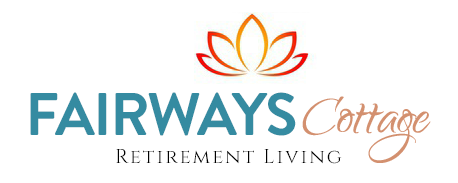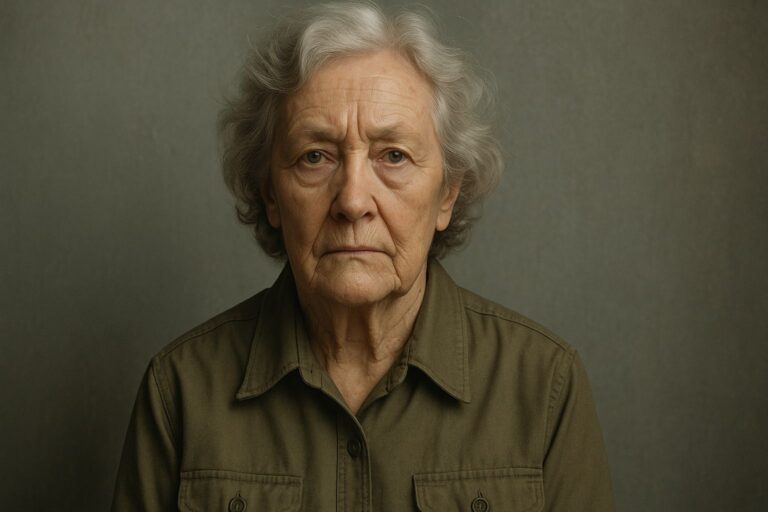What Are Independent Living Specialists?
If you’re here, you’re probably carrying the weight of love and worry. Maybe you’re watching your mother slow down after years of independence. Or perhaps your adult child is navigating life with a disability, and you’re wondering how to help them hold onto their freedom. I want you to know something right off the bat—you’re not alone, and you don’t have to figure this out by yourself.
Let me introduce you to who might just become your unsung hero: Independent Living Specialists.
An Independent Living Specialist, or ILS for short, is a trained professional who helps people live more independently, whether they’re aging, recovering, or living with a disability. But don’t mistake them for just another support worker. These folks are equal parts coach, advocate, problem-solver, and life-simplifier. They come in when everyday tasks start to feel out of reach—but independence is still the goal.
They’re champions of self-sufficiency, tailoring support plans to help people thrive at home. They understand that many of us want to age in place, not in a facility, and that individuals with disabilities deserve more than just basic care—they deserve dignity, autonomy, and the right tools to live fully.
In this guide, we’ll talk about:
- What Independent Living Specialists really do (not just what their job titles say)
- Who benefits from their support
- How they’re different from caregivers or therapists
- And how to find someone qualified, compassionate, and capable
If you’re navigating the maze of disability services, or trying to preserve a loved one’s independent living support without compromising safety, this guide is your new best friend.
Because independence isn’t just a checkbox on a care plan. It’s a lifeline to purpose—and everyone deserves that.
What Does an Independent Living Specialist Actually Do?
An ILS is not a nurse. Not a home aide. Not someone who shows up to take over. They’re more like a partner in possibility. They come alongside a person—whether that’s your aging parent, your disabled sibling, or even yourself—and ask, “What’s getting in the way of you living your life on your terms?” Then they roll up their sleeves and help figure it out.
They don’t arrive with a clipboard and a clock. They arrive with compassion, curiosity, and the kind of creative thinking you only get from someone who’s truly invested in people’s dignity.
Let me walk you through the heart of what they do.
They get to know the person behind the paperwork.
An ILS starts by spending real time understanding what someone can do well—and where things are starting to slip. Maybe cooking is a challenge because of arthritis. Maybe stairs are becoming dangerous. Maybe managing bills is just too overwhelming. They see the whole picture, not just a diagnosis or a list of limitations. From there, they help create a personalized plan that brings in just the right support—no more, no less.
They teach, they coach, they cheerlead.
Sometimes, people don’t need someone to do things for them—they just need someone to show them how to do things differently. That might mean learning how to use a reacher to get dressed, or figuring out a routine that makes mornings less stressful. I’ve seen ILS workers patiently teach someone how to navigate a smartphone or order groceries online—and the confidence that follows is a thing of beauty.
They connect people to services you didn’t even know existed.
If you’ve ever tried to apply for a housing voucher, find transportation for someone in a wheelchair, or access Medicaid-covered assistive technology, you know how maddening it can be. ILS professionals know these systems. They know where to go, who to talk to, what forms to fill out—and they walk beside you, not in front of you, the whole way.
They advocate. Fiercely.
If someone’s being overlooked, pushed aside, or pressured into a care setting they don’t want, an Independent Living Specialist doesn’t stay quiet. They speak up. They know a person’s rights and how to defend them. And they don’t shy away from tough conversations, whether it’s with a doctor, a landlord, or a government caseworker.
They look at the home with a caregiver’s eye and a survivor’s instincts.
Is there clutter near the stairs? Are the rugs slippery? Is there good lighting in the hallway at night? An ILS knows what can quietly turn into an emergency. They’ll suggest changes—simple or significant—that can make a home safer, more manageable, and still feel like home.
And they offer something harder to describe, but no less important—hope.
Many ILS professionals have lived experience with disability themselves, or they’ve been caregivers, just like you and me. They know what it’s like to feel stuck, scared, or forgotten. And when they sit down with someone and say, “You can do this—we just need a few tools and a plan,” it means something.
So what do Independent Living Specialists really do?
They help people stand on their own terms. With grace. With grit. And with a whole lot of heart.
Key Skills and Traits of a Great Independent Living Specialist
Not everyone is cut out for this kind of work—and that’s not a criticism. It takes a certain kind of person to walk into someone else’s life, gently rearrange the pieces, and leave them standing taller than they were before. So if you’re wondering what makes a truly exceptional Independent Living Specialist, here’s what I’ve seen time and again in the best of them.
They listen like it’s their job—because it is.
Not just polite nodding while they wait for their turn to speak. I mean real, intentional listening. The kind that picks up on what someone’s afraid to say out loud. You can’t help someone live independently if you don’t first understand what independence means to them.
They have the heart of an advocate and the hands of a problem-solver.
A great ILS doesn’t just point someone toward services—they go the extra mile to make sure those services are accessible, appropriate, and actually helpful. They think five steps ahead and troubleshoot before things fall apart. They know how to get creative when resources are limited. I once watched an ILS repurpose a rolling office chair as a makeshift mobility aid until proper equipment arrived. That’s the kind of thinking I’m talking about.
They know when to step in—and when to step back.
This is delicate work. It’s not about doing everything for someone; it’s about helping them do what they can, in their own way, with dignity intact. A good ILS resists the urge to rescue. They support, they scaffold, they empower—but they don’t take over.
They communicate clearly—with everyone.
Whether it’s explaining Medicaid eligibility to a client or negotiating a home modification with a reluctant landlord, communication is everything. They use plain language, not jargon. They’re patient, persistent, and respectful, even when they have to push for something that’s right.
They stay grounded in empathy, not pity.
This work isn’t about feeling sorry for people—it’s about seeing their strength, their value, and their capacity to live life on their terms. The best ILS professionals carry a quiet kind of respect. They don’t see disability as a tragedy or aging as a decline—they see people. Whole people.
They’re organized but flexible.
Every person is different. What works for one client may not work for the next, and plans often shift. A great ILS can juggle service coordination, client meetings, paperwork, and crisis calls—while still showing up calm and collected when they walk through the door.
And maybe most importantly, they believe in people.
Not in a motivational poster kind of way. In a sit-down-with-you-on-a-hard-day-and-help-you-see-the-way-forward kind of way. That belief—that someone still has something to give, to grow, to live for—is what turns a support worker into a lifeline.
So if you’re looking for an Independent Living Specialist, or thinking of becoming one, keep this in mind:
Skills can be taught. Systems can be learned. But the heart to do this work well? That comes from a place of deep, quiet strength. And it changes lives.
Who Can Benefit from an Independent Living Specialist?
Let’s clear something up right away—Independent Living Specialists aren’t just for seniors, and they’re not only for people with visible disabilities. The truth is, the need for this kind of support can touch anyone, in any family, at just about any stage of life.
If you’re wondering whether this kind of help is really necessary, here’s a simple way to think about it:
If someone wants to live independently—but daily life is starting to push back—a good ILS can help push back harder.
Let’s talk about who that includes.
Older Adults Who Want to Age in Place
This is probably the group people think of first—and for good reason. Most older adults want to stay in their own homes as long as possible. Not in a facility, not in a relative’s guest room, but in the house they know, the one with their favorite chair and the kitchen that smells like memories.
But aging brings challenges. Stairs get harder. The bathroom becomes risky. Bills pile up because managing them is exhausting. An Independent Living Specialist steps in to keep the home livable, routines manageable, and independence intact—for as long as safely possible.
Adults with Disabilities
Whether someone was born with a disability or acquired one later in life, independence can be a moving target. It might mean learning to cook with one hand, navigating a bus route in a wheelchair, or finding an accessible apartment in a city that wasn’t built for it.
An ILS helps break those barriers down, piece by piece. They don’t just provide services—they help people build skills, boost confidence, and reclaim control over their lives.
Veterans or Individuals Recovering from Injury or Illness
Sometimes life changes fast. A stroke. A spinal cord injury. A traumatic brain injury. These events can shake a person’s entire sense of identity and self-sufficiency.
An Independent Living Specialist doesn’t just offer help—they offer a path forward. They walk beside the person, helping them rebuild not just routines, but a sense of purpose and stability.
Caregivers Who Are Stretched Too Thin
If you’re a family caregiver trying to do it all, I don’t need to tell you how heavy it can feel. You love your person. But love doesn’t cancel out exhaustion, or confusion, or fear.
An ILS can give you back some breathing room. They can fill in the gaps, offer resources you didn’t know existed, and take some of the pressure off so you can focus on being present—not just being responsible.
Teens and Young Adults Transitioning to Independent Living
This is a group that gets overlooked far too often. Young people with disabilities face a steep climb when transitioning into adulthood. They may need help learning to budget, grocery shop, use public transportation, or communicate with landlords and employers.
An ILS helps build those life skills, not in theory, but in everyday practice. They help lay a foundation for a future that’s not just possible—but powerful.
People Falling Through the Cracks
Sometimes it’s not one big thing. Sometimes it’s a thousand little things—a late diagnosis, limited family support, isolation, or poverty. These are the folks most at risk of being forgotten.
A good Independent Living Specialist sees them. Reaches them. Believes in them when the systems around them don’t.
So who can benefit from an Independent Living Specialist?
Anyone who wants to live life on their terms but needs a little help getting there. Anyone whose potential is being stifled by their environment, not their ability. Anyone who still has something to give—but needs someone to believe that’s true.
And if you’re reading this and thinking, “That sounds like my loved one,” then yes, this kind of support might be exactly what you’ve been looking for.
What Services Do Independent Living Specialists Provide?
If you’ve ever tried to patch together care for a loved one, you know the frustration: too many providers, not enough coordination, and a whole lot of confusion. What makes an Independent Living Specialist such a breath of fresh air is that they don’t just provide services—they provide clarity, connection, and continuity.
Now, the exact services might vary depending on the agency or the person’s needs, but here’s what you can expect from a truly dedicated ILS—and why each piece matters.
1. Comprehensive Needs Assessments
It always starts with a conversation. A real one—not a checklist handed across a desk. A good ILS will visit the home, observe how a person is functioning, and ask the kinds of questions that reveal the real story. What’s working? What’s frustrating? What’s dangerous? What’s missing?
From there, they create a support plan that reflects the person’s actual life—not a one-size-fits-all template.
2. Independent Living Skills Training
This is where the rubber meets the road. An ILS might help someone learn how to:
- Safely prepare meals with limited mobility
- Use public transportation with visual impairment
- Manage medications using reminders or pill organizers
- Set up online bill payments
- Use voice-activated devices to control lighting or call for help
And they don’t just explain—they demonstrate. They practice. They cheer a person on until those skills stick.
3. Assistive Technology Support
Whether it’s a simple reacher tool or a high-tech communication device, technology can make the difference between dependence and dignity. An ILS will:
- Recommend the right tools for the person’s needs
- Train them to use those tools confidently
- Help troubleshoot or adjust as needed
They might even help complete applications for technology funding through local or federal programs.
4. Home Safety Evaluations and Modifications
Most homes aren’t built for aging or disability. An ILS will walk through the space with experienced eyes, spotting risks like:
- Slippery rugs
- Poor lighting
- Cluttered hallways
- Inaccessible bathrooms
They’ll make practical recommendations—maybe adding grab bars, swapping door handles, or rearranging furniture for easier mobility. And if the person can’t afford those changes? An ILS will often know where to look for funding or grants.
5. Resource Navigation and Advocacy
This part alone is worth gold. A good Independent Living Specialist is like a human compass in a forest of red tape. They help connect clients with:
- Housing programs
- Medicaid waiver services
- Transportation assistance
- Vocational rehabilitation
- Peer support networks
- Food and utility aid
And when doors are closed, they know how to knock louder—or open a different one entirely.
6. Transition Planning
Whether it’s a teenager moving out for the first time, a senior leaving rehab, or someone newly disabled adjusting to a new reality, transitions are hard. ILS professionals help map those changes step by step, so nothing important gets lost in the shuffle.
7. Emotional and Peer Support
Sometimes, the biggest service they offer is simply being there. Listening without judgment. Believing in someone when that person is losing belief in themselves. Many ILS workers bring their own lived experiences to the table, which makes their support feel authentic, grounded, and deeply human.
These services aren’t fancy. They’re foundational.
They turn “I can’t” into “maybe I can.”
They turn isolation into inclusion.
And they help someone do something many of us take for granted: live their life, in their space, with as much freedom and self-respect as possible.
How to Know If You Need an Independent Living Specialist (Checklist)
Sometimes the signs are loud and clear—a bad fall, a missed medication, a crisis that shakes everything up. Other times, they creep in quietly. A bit more clutter. A stack of unpaid bills. A loved one skipping meals or sleeping through the day because doing anything more just feels like too much.
Families often ask me, “How do I know if it’s time to bring someone in?” So here’s a simple, honest checklist you can use. This isn’t about labeling or judging—it’s about noticing. And listening to your gut.
If two or more of these sound familiar, it might be time to talk with an Independent Living Specialist.
Daily Tasks and Routines
- Difficulty preparing meals or relying heavily on takeout
- Struggling with laundry, cleaning, or home maintenance
- Forgetting or skipping medications
- Inconsistent personal hygiene (bathing less, wearing the same clothes repeatedly)
Mobility and Home Safety
- Trouble navigating stairs or walking across the room
- Frequent falls, near-falls, or needing to hold onto furniture
- Refusing to use mobility aids that could help
- Unsafe or cluttered home environment that hasn’t been addressed
Mental and Emotional Health
- Signs of depression, anxiety, or emotional withdrawal
- Saying things like “I can’t do anything anymore” or “It’s just too hard”
- Becoming increasingly isolated or avoiding social interaction
- Seeming overwhelmed by simple decisions or daily plans
Technology and Communication
- Difficulty using the phone, computer, or emergency call system
- Missing appointments or losing track of time
- Struggling to pay bills, respond to mail, or manage passwords
Medical and Health Management
- Missed follow-up appointments or therapies
- Worsening of chronic conditions due to lack of daily support
- Confusion about medical instructions
- Overreliance on emergency care instead of preventive services
Caregiver Stress
- You, as a caregiver, are feeling burnt out, resentful, or afraid you’re in over your head
- You’ve missed work or social obligations because of caregiving duties
- You feel unsure if you’re doing the right thing—or doing enough
- You’re spending more time managing crises than enjoying your loved one’s company
If this checklist hits close to home, don’t panic—and don’t beat yourself up. This doesn’t mean your loved one has failed. It doesn’t mean you’ve failed.
It means it might be time for another kind of support. One that preserves your loved one’s independence while making their daily life safer, simpler, and more dignified.
An Independent Living Specialist doesn’t replace your care—they strengthen it.
They can help you breathe a little easier. And they can help your loved one feel like themselves again.
How to Find a Qualified Independent Living Specialist
Finding the right Independent Living Specialist isn’t just about checking certifications—it’s about finding someone you trust with your loved one’s safety, dignity, and day-to-day life. That’s a tall order. But with the right questions and a little persistence, you can absolutely find someone who’s a good match.
Let’s walk through where to look, what to ask, and how to feel confident in your choice.
Where to Start Your Search
1. Centers for Independent Living (CILs)
These are nonprofit organizations that exist across the country and specialize in supporting people with disabilities and those seeking to live independently. Most CILs employ trained Independent Living Specialists and can guide you directly to someone who’s experienced and credible.
Visit: https://www.ilru.org/projects/cil-net/cil-center-and-association-directory
2. Local Area Agencies on Aging (AAA)
If your loved one is a senior, your regional AAA can be an excellent resource. They often maintain directories of service providers, including ILS professionals who work with older adults wishing to age in place.
3. Disability Services Departments
For individuals with specific needs—such as visual impairment, mobility challenges, or developmental disabilities—your local or state-level disability services office may have a referral program or approved provider list.
4. Rehabilitation Centers and Hospitals
Hospitals, especially those with inpatient rehab programs, often work with ILS professionals and may offer referrals during discharge planning.
5. Word of Mouth
Don’t underestimate your network. Talk to physical therapists, social workers, care managers, or other families walking a similar path. Some of the best recommendations come from people who’ve been in your shoes.
What to Look For
Experience with Similar Clients
Ask if they’ve worked with people in your loved one’s situation—aging adults, individuals with cognitive impairment, veterans, stroke survivors, etc. Lived experience also counts; many outstanding ILS professionals have personal disability or caregiving backgrounds.
Training and Certifications
While there’s no universal license for ILS work, many have certifications or formal training in areas like:
- Occupational therapy assistance
- Social work
- Disability advocacy
- Assistive technology
Communication Skills
You want someone who explains things clearly, listens deeply, and treats both the client and family members with respect. Watch how they interact with your loved one. Do they talk with them, not about them?
Compassion Without Condescension
It’s a delicate balance. You want someone who brings warmth, but doesn’t infantilize. Someone who builds trust without being overbearing. You’ll know it when you see it.
Flexibility and Follow-Through
Ask how they handle emergencies, changing needs, or when something doesn’t go to plan. An ILS worth their salt will have strategies in place—and a calm demeanor to go with it.
Questions to Ask During the First Meeting
- What kind of clients do you typically work with?
- How do you develop and update an independent living plan?
- What services do you offer directly, and what do you coordinate with other providers?
- How do you advocate for clients in systems like healthcare or housing?
- What’s your availability for urgent issues?
- Can you provide references or success stories from past clients?
And perhaps most importantly—how do they make you feel? At ease? Respected? Hopeful?
This is personal work. It requires trust. So don’t rush. The right ILS is out there, and when you find them, you’ll feel it.
The Difference Between Independent Living Specialists and Equipment Retailers
Let’s talk about the elephant in the search bar.
If you’ve typed “independent living specialist” into Google and found yourself buried in listings for recliner chairs, walking frames, and medical supply showrooms, you’re not imagining things. The term “Independent Living Specialist” gets used in two very different ways—and it causes a lot of unnecessary confusion for families just trying to find the right kind of help.
So let’s break it down, plain and simple.
One Is a Person. The Other Is a Company.
An Independent Living Specialist (person) is a professional who works directly with individuals—helping them build the skills, routines, and support systems they need to live as independently as possible. They might work for a nonprofit, a government agency, a rehab facility, or as part of a care team. Their focus is on the whole person—not just their equipment needs.
Independent Living Specialists (businesses)—like the large Australian chain with the same name—are companies that sell products to assist with independent living. They carry everything from mobility scooters and hospital beds to grab bars and pressure cushions.
Now, are those products important? Absolutely. I’ve seen the right equipment make all the difference in whether someone can stay safely in their home. But buying a wheelchair doesn’t teach someone how to transfer in and out of it. A raised toilet seat won’t remind a person when to take their medications.
That’s where the human touch comes in. That’s what a real ILS brings to the table.
Why This Matters When You’re Looking for Help
If you’re:
- Trying to keep your parent at home a little longer
- Figuring out how your adult child with a disability can move into their first apartment
- Or simply feeling lost in a maze of systems, appointments, and “what now?”
…then what you need isn’t just a product catalog. You need a person. Someone who listens, plans, teaches, adjusts, and walks alongside your loved one.
That’s not something you can get from a website shopping cart.
How to Avoid the Confusion
- When searching online, try adding terms like “services,” “support,” “disability coaching,” or “independent living plan” to your search.
- If you land on a product site, scan their “About Us” or “Services” page—some companies do offer in-home evaluations or partner with ILS professionals, but many don’t.
- When in doubt, go back to your local Center for Independent Living or Area Agency on Aging. They’ll help you find the real people—not just the products.
So yes, both meanings of the term can play a role in supporting independent living. But don’t settle for one when what you really need is the other.
Your loved one doesn’t just need a better chair. They need someone who sees the whole picture—and helps them live fully within it.
How Much Does an Independent Living Specialist Cost?
Let’s talk dollars and sense—because we can’t talk about support without talking about what it costs.
Families often hesitate to bring in an Independent Living Specialist because they assume it’s out of reach financially. And I understand that fear. Many of us are already stretched thin, and the thought of another monthly expense can feel overwhelming.
But here’s the truth: the cost of an Independent Living Specialist varies widely—and in many cases, it’s more affordable than you’d think. In some situations, it may even be covered by insurance or offered free through nonprofit agencies.
Let’s walk through the possibilities.
Private Pay: What It Can Look Like
When you hire an Independent Living Specialist privately—say, through an agency or as a freelance provider—you’re typically looking at:
- $25 to $75 per hour depending on location, qualifications, and services provided
- Some offer flat rates for specific services (like a home safety assessment or weekly coaching session)
- Others may offer monthly care packages that combine multiple services for a reduced fee
That said, don’t let the numbers scare you just yet. Many families only need a few hours a month to see real results—especially in the beginning, when setting up systems and plans.
And remember: investing in independence now can often prevent larger costs later—like emergency room visits, unnecessary facility placements, or lost wages from caregiver burnout.
Covered by Public Programs or Insurance
In many states and provinces, Independent Living Specialist services can be partially or fully covered through:
- Medicaid Home and Community-Based Services (HCBS) waivers
- Veterans Affairs (VA) programs
- Developmental disability programs
- Centers for Independent Living (CILs) offering free or sliding-scale services
- Some private insurance plans, especially if services are tied to rehabilitation, case management, or occupational therapy support
The key is eligibility. These programs usually have income or medical criteria, but a good ILS or social worker can often help with the paperwork and walk you through the process.
Grants, Nonprofits, and Community Resources
If private pay and insurance aren’t options, don’t give up. Many communities have:
- Senior support nonprofits
- Faith-based programs
- Disability advocacy organizations
- State assistive technology programs
These groups sometimes fund short-term ILS services, offer caregiver training, or provide one-time help with home modifications and independent living plans.
Questions to Ask Before Committing
- What’s your fee structure?
- Are you affiliated with any programs that offer funding or reimbursement?
- Can you help us apply for waivers or public support?
- Do you offer sliding-scale pricing?
- What services are included in your rates, and what’s considered extra?
Ask every question you need to. A good provider will welcome that conversation. And if they don’t? Keep looking.
The bottom line: Yes, there’s a cost. But there’s also a cost to not getting support—stress, burnout, hospital bills, lost income, and the heartbreaking toll of watching someone’s independence fade when it didn’t have to.
So don’t let the price tag stop you from asking. You might be surprised by how many doors open when you do.
Careers: How to Become an Independent Living Specialist
Every so often, someone will read about this work and say, “This is exactly what I want to do.” And when that happens, I always smile. Because if you feel that pull—to guide, to advocate, to walk alongside someone as they reclaim their independence—then there’s room for you in this field.
Independent Living Specialists don’t just show up out of nowhere. They’re built. Shaped by experience, training, and that steady fire in the belly that says, “People deserve to live fully, not just survive.”
So if you’re thinking of making this your path, here’s what you need to know.
There’s No One “Right” Way In—But There Are Common Threads
This isn’t a licensed profession like nursing or social work, but most organizations hiring ILS professionals look for:
- A background in human services, disability support, senior care, or case management
- Strong interpersonal skills—especially in advocacy, communication, and problem-solving
- Personal experience with disability or caregiving (which is often just as valuable as a degree)
Some jobs may require:
- An associate’s or bachelor’s degree in social work, rehabilitation counseling, occupational therapy assistance, or related fields
- Knowledge of Medicaid/Medicare systems, housing laws, and assistive technology
- A valid driver’s license and willingness to do home visits
Certifications That Can Help (But Aren’t Always Required)
While formal certification isn’t universally necessary, having the following can boost your credibility:
- Certified Aging in Place Specialist (CAPS) – Great for those working with seniors and home safety
- Certified Disability Management Specialist (CDMS)
- Assistive Technology Professional (ATP)
- Peer Mentor or Peer Support Training, especially if you have lived experience with disability
Some Centers for Independent Living (CILs) offer their own internal training or mentorship programs for new ILS professionals.
Where You Might Work
- Centers for Independent Living (CILs)
- Nonprofit disability organizations
- Area Agencies on Aging
- Hospitals and rehabilitation centers
- Veteran support programs
- Home care agencies with a holistic support model
And in some cases, you may go independent—working directly with families or through government-funded voucher programs.
What the Work Looks Like
No two days are the same. You might spend the morning visiting someone’s home to assess their living setup, the afternoon helping a client apply for housing, and your evening advocating with a state agency to push through a delayed service.
The pace can be unpredictable. The paperwork is real. But the reward? It’s in the eyes of the person who says, “I didn’t think I could do this—but I just did.”
The Qualities That Matter Most
You don’t need a fancy title. You need:
- Empathy that doesn’t wear out
- Boundaries that protect both you and your client
- Grit for the long haul
- A deep respect for autonomy, even when it looks messy
- And the humility to know you’re walking with people—not leading them
If that sounds like you, then yes—you can absolutely do this work.
And if you’re already doing this work, quietly, in your own way—advocating for a loved one, finding solutions that no one else would—you’re already halfway there.
Real-Life Stories: A Day in the Life of an Independent Living Specialist
Sometimes the best way to understand what someone does is to walk a day in their shoes—or at least try them on for a moment.
So let me introduce you to “Karen.” She’s not a real person, but she’s a blend of many ILS professionals I’ve known. She’s been doing this work for a decade. She’s smart, tough, and full of heart. Here’s what one of her typical days might look like.
8:30 AM – Home Safety Visit
First stop is Mr. Davis, an 82-year-old who just got discharged from the hospital after a fall. Karen was looped in by the social worker to help him transition back home safely. She’s there to assess the apartment.
She checks the lighting in the hallway (dim), notes the rugs (slippery), and gently suggests a grab bar near the toilet. Mr. Davis resists at first. “I don’t want my place looking like a hospital,” he mutters. Karen listens. Then she asks, “What if it means staying here longer instead of moving into assisted living?” That lands. He nods.
She leaves a checklist, arranges a follow-up call, and makes a note to contact a local nonprofit that can help cover the cost of the modifications.
10:15 AM – Technology Coaching
Next is Maya, a 27-year-old with cerebral palsy who’s learning to live independently in her first apartment. She’s sharp and resourceful but struggles with the online grocery delivery app. Karen sits beside her and walks her through it—not just once, but three times, until Maya’s confident. Together they save a meal plan, set up a shopping list, and practice scheduling delivery times.
They laugh when the voice assistant mispronounces Maya’s favorite snack. It’s small, but it matters. Maya beams when she hits “submit” all by herself.
12:00 PM – Working Lunch in the Car
Karen parks outside the next client’s home and eats a sandwich while reviewing notes. She returns a call to a housing coordinator about a waitlist for a client with a traumatic brain injury. She responds to a parent asking for help with transition planning for their teen son. She fills out a service documentation form on her tablet.
This isn’t downtime—it’s the space between. And it’s packed.
1:30 PM – Advocacy in Action
Her next visit is with Gloria, a 60-year-old woman with early-stage MS who was just denied accessible housing. Karen’s already called the case manager once and got nowhere. This time, she brings documentation, medical letters, and Gloria’s written statement.
She sits across the desk from a tired administrator and calmly—but firmly—lays out the facts. “You’ve denied her access based on a technicality. That’s not how the policy reads. And we both know it.” The administrator sighs. “Let me take another look.”
Karen doesn’t get loud. She gets clear. And it works.
3:45 PM – Peer Support Drop-In
Her final stop is at a small community center, where she facilitates a peer group for young adults with disabilities. Today’s topic is budgeting and bill pay. But it veers into loneliness, dating, and dealing with family who still see them as fragile.
Karen listens more than she speaks. She makes space for the hard stuff. At the end, one young man lingers. “Thanks,” he says. “I didn’t think I belonged here. But now I kind of do.”
5:30 PM – Wrap-Up and Regroup
Back at home, Karen finishes up her notes. She emails a referral, flags two clients for urgent follow-up, and adds a sticky note on her laptop: “Remind Mr. Davis to call the handyman.” Then she sets it all aside, knowing tomorrow will bring more of the same—and something entirely new.
This is the life of an Independent Living Specialist.
It’s not glamorous. It’s not always neat. But it’s holy work in its own quiet way.
It’s fighting for someone who’s lost their voice.
It’s noticing what no one else saw.
It’s helping someone do something they didn’t believe they could.
One phone call, one visit, one small win at a time.
Final Thoughts: Why Independent Living Specialists Matter in Today’s Aging World
If you’ve made it this far, let me tell you something that probably needs saying: you’re doing a brave thing.
Looking into this kind of help—this kind of support—for someone you love means you care deeply. It means you see them not as a problem to be solved, but as a person who still deserves choice, dignity, and purpose.
That’s exactly what an Independent Living Specialist is here to protect.
In a world that rushes people into facilities, that hands out medication faster than conversation, and that too often sees aging or disability as a burden, ILS professionals are a quiet rebellion. They say, “You still matter. Your preferences matter. Your life, just as it is today, still belongs to you.”
And that’s revolutionary in its own gentle way.
We are living in an era where more people want to age in place. Where younger adults with disabilities are stepping into lives of their own. Where caregivers are stretched thin and systems are buckling under pressure. Independent Living Specialists are one of the few roles that bring all the pieces together—compassion, planning, creativity, and action.
They’re not heroes with capes. They’re boots-on-the-ground advocates, with paperwork in one hand and a flashlight in the other—lighting a path for someone to walk on their own.
So whether you’re:
- A family caregiver looking for help that still honors your loved one’s independence,
- Someone with a disability trying to hold onto your freedom without giving up support,
- Or a soul thinking, “Maybe this is the work I’m meant to do,”
…you’ve come to the right place.
Support doesn’t have to mean surrender.
Help doesn’t have to mean losing control.
And independence doesn’t have to mean doing it all alone.
Independent Living Specialists remind us that with the right support, people can do far more than survive—they can live well.
And really, isn’t that what we all want?
Share This Article:






